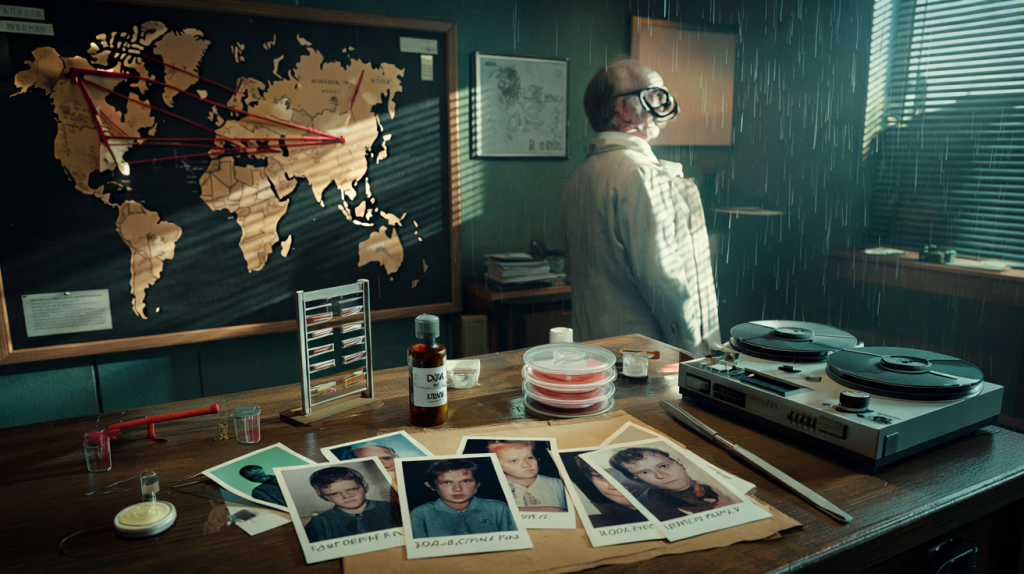Meta description: Hunting for the “Les Garçons du Brésil” series? Here is what’s official today, the real story behind it, and where to watch The Boys from Brazil.
Looking for the Les Garçons du Brésil series and wondering where to stream it? Here is the clear answer: there is no officially released TV series titled “Les Garçons du Brésil” at this time. The story most people search for lives in Ira Levin’s 1976 novel “The Boys from Brazil” and the 1978 film adaptation that made headlines with its chilling premise.
So the interest is real, and the question makes sense. The tale follows Nazi war criminal Josef Mengele and a plan to seed a future tyrant by cloning. The film, directed by Franklin J. Schaffner and led by Gregory Peck and Laurence Olivier, turned a controversial idea into a pop culture landmark. If a series happens in the future, this is the ground it would stand on.
Les Garçons du Brésil series: what is confirmed right now
No network or streamer has released a series officially titled “Les Garçons du Brésil”. Searches surge whenever a rumor breaks, but as of today there is no confirmed show, no premiere date, no announced cast under that exact name.
That said, the property remains high on fan wish lists. The concept is tailor made for limited series treatment: international manhunt, moral gray zones, and a high-stakes conspiracy that unfolds across continents. Interest spikes tend to follow anniversaries of the book or film, and fresh debates around bioethics.
Ira Levin’s plot and the 1978 film: the essential facts
The origin is literary. Ira Levin published “The Boys from Brazil” in 1976, a tight thriler built around a horrifying question: if you cloned Adolf Hitler and recreated key childhood conditions, could history repeat itself? Genetic clones share 100 percent of their DNA, but the story pits nature against the messy reality of nurture.
Two years later, in 1978, Franklin J. Schaffner directed the film adaptation. Gregory Peck portrayed Josef Mengele, with Laurence Olivier as Nazi hunter Ezra Lieberman. The movie reached awards season with momentum and, in 1979, received three Academy Award nominations.
For quick orientation, here are the baseline facts that matter to anyone searching for a series version:
- Book : “The Boys from Brazil” by Ira Levin, published in 1976.
- Film : released in 1978, directed by Franklin J. Schaffner.
- Main cast : Gregory Peck and Laurence Olivier.
- Awards : three Academy Award nominations in 1979.
Could a modern series work? Casting, format, and real-world context
The structure practically writes itself for TV. Episodes could follow the investigation across South America and Europe, then swing back to the boys’ households where small, unnerving details accumulate. Contemporary shows lean into procedural momentum with slow-burn character arcs, which fits Levin’s setup.
There is also a timely angle. Conversations about cloning and gene editing keep resurfacing with new research cycles. The science has moved, the ethics have sharpened, and audiences are used to prestige thrillers that blend real-world anxieties with intimate stakes. A limited series of 6 to 8 episodes would likely balance pace and depth without stretching the plot thin.
One practical factor explains why interest returns: star power. A role like Mengele demands a formidable screen presence, and the counterweight – the weary investigator – needs quiet gravity. That pairing, plus a showrunner comfortable with historical sensitivity, would be the tipping point from rumor to greenlight.
Where to watch The Boys from Brazil and what to read next
The 1978 film appears regularly on digital storefronts for rent or purchase and sometimes rotates through subscription catalogs depending on region. Availability changes, so checking the usual platforms remains the quickest route.
For anyone drawn to the series idea, the best move today is simple. Start with Ira Levin’s 1976 novel to grasp the narrative spine and moral questions. Then watch the 1978 film to see how the central cat-and-mouse plays on screen. Reading first, viewing second, makes the hypothetical series feel less like a mystery and more like an evolution of a classic thriller blueprint.
If a new adaptation lands, expect updated investigation tools, a broader lens on survivor networks, and a sharper debate around what science can do versus what society should allow. The heart of the story will stay the same: ordinary lives colliding with a plan that tries to script the future – and the stubborn human choices that refuse to follow the script.
